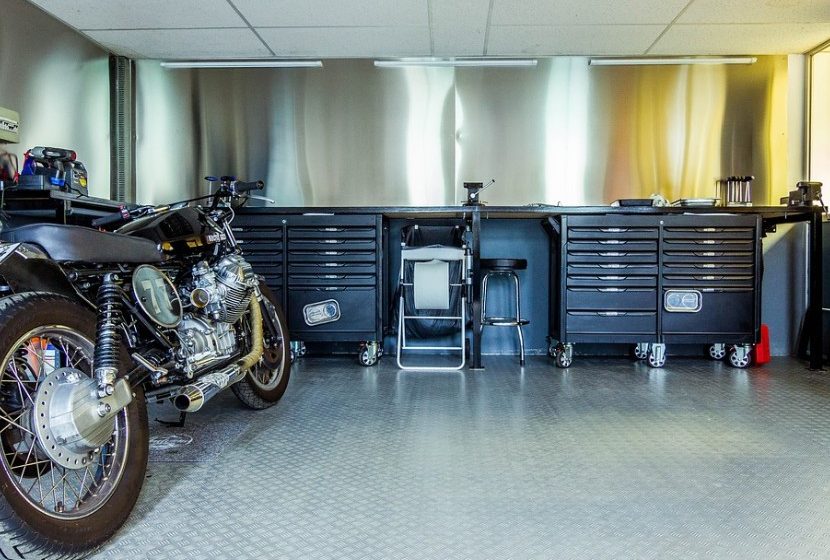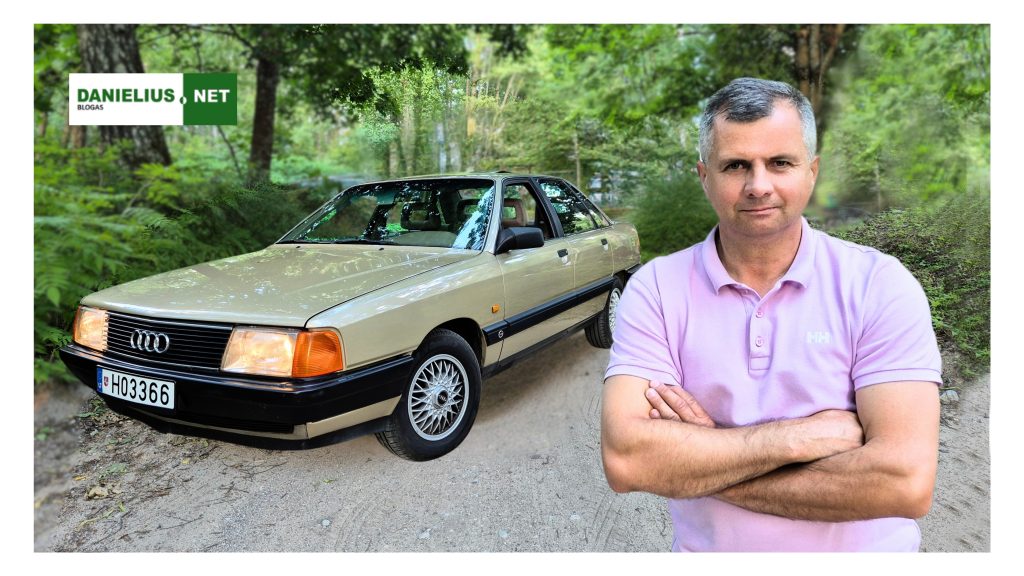Self storage for rent in Vilnius – a practical local guide

Vilnius is a city on the move—new jobs, new apartments, new hobbies, and a lively flow of students, expats, and entrepreneurs. That movement creates a simple need: space. If you’re between homes, renovating, starting an online shop, or just trying to reclaim your hallway from skis and bicycles, self storage for rent in Vilnius can make life a lot easier. This guide explains how to choose a unit, what to expect, and how to use storage smartly so you get safety, flexibility, and real value without overpaying. Our aim is to be helpful first and promotional second.
Why self storage for rent in Vilnius is booming
Urban living means compact apartments, basement storages that aren’t always dry or secure, and seasonal gear that takes over precious square meters. Add in Vilnius’s strong renovation culture and a growing small-business scene, and demand for self storage for rent in Vilnius becomes obvious. Modern storage offers three things the typical shed or cellar can’t: predictable access, consistent protection from the elements, and professional security. For residents, that means a stress-free place for the stuff you use occasionally but don’t want to lose. For businesses, it means an affordable “extension” to the office or studio—without long commercial leases.
How to choose self storage for rent in Vilnius
Picking the right unit is part detective work, part common sense. Here’s a straightforward way to evaluate options so you pay for exactly what you need—no more, no less.
Location and travel time: Map your routes. If you’ll visit weekly (e.g., inventory restocks), proximity to your home or workplace matters more than saving a few euros. If you’ll go once a season, you can prioritize features over location.
Access hours: Decide how spontaneous you need to be. Some facilities offer 24/7 access via secure entry; others have staffed hours. Night-owl designers and early-bird cyclists value round-the-clock convenience. If you only need weekend access, say so and avoid paying for bells and whistles you won’t use.
Unit size: Think in cubic meters, not just floor area. High ceilings allow vertical stacking with shelving. Typical needs: 1–2 m² for boxes and sports gear; 3–5 m² for a studio/one-bedroom move; 6–10 m² for a two-bedroom; more for business stock or furniture sets. When in doubt, ask to see a unit and bring a quick inventory list—photos on your phone help.
Security layers: Look for multiple barriers: perimeter security, controlled entry, cameras, individual unit locks, and good lighting. Ask how the facility monitors activity and how incidents are handled.
Climate and building type: In Vilnius, moisture and temperature swings are real. For delicate items—electronics, instruments, paper archives—consider indoor units with stable conditions. For hardy items like tools or patio furniture, standard units may be perfect.
Contracts and flexibility: Life changes. Favor contracts that allow you to scale size up or down and to finish on short notice once the project ends. Clear, simple terms beat tiny-print surprises every time.
Support and equipment: Trolleys, loading bays, wide corridors, and elevators turn a chore into a quick visit. Ask whether packaging materials and shelving are available on site.
Security essentials for self storage for rent in Vilnius
Security is not one thing but a stack of measures working together:
- Controlled entry: Unique PINs or key cards tied to your unit.
- Video coverage: Cameras in corridors, entrances, and loading areas.
- Lighting: Bright, even lighting discourages mischief and helps you work quickly.
- Unit hardware: Solid doors and lock fittings that accept high-quality padlocks.
- Procedures: Visitor logs, incident response, and routine patrols.
If a manager can explain these plainly and show you how they work, that’s a good sign.
Access and location: self storage for rent in Vilnius
Consider traffic patterns. Units near major routes like western bypass corridors or close to neighborhoods such as Naujamiestis, Žvėrynas, Antakalnis, or Šnipiškės reduce travel time. If you don’t own a car, check public transport connections or whether the facility partners with couriers. Businesses that restock frequently benefit from drive-up access; private renters moving furniture may appreciate indoor loading bays shielded from rain or snow.
Costs and value: getting the most from self storage for rent in Vilnius
Price depends on size, location, and features. A smart approach is to optimize the volume you actually use:
- Right-size your unit: Declutter before you rent. A quick pre-move purge can reduce your storage size by a third.
- Use vertical space: With simple freestanding shelves, a 3 m² unit can behave like 5–6 m².
- Share when appropriate: Housemates or micro-business partners can share a larger unit to lower cost per person—just coordinate access rules.
- Choose features based on contents: Paying for climate control makes sense for sensitive items; it’s unnecessary for garden tools.
- Leverage flexibility: Shorter terms cost more per month; longer terms sometimes include discounts. If your move is temporary, a short commitment avoids paying for months you won’t use.
Value isn’t only price; it’s also reliability. A secure, dry, well-run facility prevents losses, delays, and repeat purchases of items damaged by damp cellars or hasty moves.
Who benefits most from self storage for rent in Vilnius?
Households and movers
Renovating your apartment? Store furniture and appliances to keep dust away and rooms workable. Between leases? A unit buys you days or weeks of flexibility so you can move gradually instead of in one exhausting weekend. Growing families often rotate seasonal things—strollers, car seats, kids’ sports gear—so home stays livable.
Students and expats
If you’re leaving for the summer or a semester abroad, a small unit is cheaper and safer than shuttling belongings between friends’ flats. International professionals who travel for projects can keep personal items, documents, and winter kit in Vilnius without renting a bigger apartment year-round.
Small businesses, creators, and online sellers
E-commerce sellers use storage as a “mini warehouse”: stock, packing materials, and a small table for pick-and-pack. Photographers and musicians store backdrops, lighting rigs, or PA equipment. Tradespeople free up van space by keeping less-used tools and supplies in a secure, accessible unit. One underrated benefit: separating work stock from home reduces clutter and stress.
Packing and storing – Vilnius-savvy tips that save you time
- Box choice: Use uniform, sturdy boxes that stack cleanly. Avoid overfilling; a broken box wastes time and risks injury.
- Label like a pro: Label at least two sides and the top. Include room or category, short contents, and priority (e.g., “Open first: bedding”).
- Shelving and aisles: Install simple shelves along two sides and keep a central aisle you can walk through. Future-you will thank you.
- Protect against moisture: For basements and non-climate units, elevate boxes on pallets and use plastic bins for fabrics. Add moisture absorbers if you store for months.
- Wrap for seasons: Vilnius winters are cold; batteries and certain liquids don’t love it. Remove batteries from gadgets and avoid storing anything that could leak or freeze.
- Furniture strategy: Disassemble large pieces, tape screws to the underside in labeled bags, and cover surfaces with breathable blankets rather than airtight plastic.
- Inventory on your phone: Snap quick photos of box contents before sealing. A simple shared note helps families or teams find things without a trip.
- The “front zone”: Put the items you’ll access often near the door—luggage, sports gear, a few office supplies—so visits are five minutes, not fifty.
What you should (and shouldn’t) store
Great candidates: seasonal clothing, sports gear, bikes, skis, camping equipment, books, records, household goods, furniture, tools, business inventory, exhibition materials.
Think twice: high-value jewelry or irreplaceable documents may be better in a safe deposit box.
Typically prohibited: perishable foods, plants, animals, illegal items, flammables, and explosives. If in doubt, ask for a list of prohibited goods before you pack.
Step-by-step – renting self storage for rent in Vilnius
- Define your goal: Short-term bridge during a move, or long-term space optimization? Your use case shapes size and features.
- Measure and list: Count big items and estimate boxes. A quick tally prevents guesswork.
- Visit in person: Look for cleanliness, lighting, signage, and how staff handle questions. Try the loading route with an empty trolley to see if it’s smooth.
- Pick your size and position: Ground floor is convenient; upper floors may be more economical if there’s a lift. Corner units can fit awkward furniture.
- Review the agreement: Check access hours, notice periods, insurance options, and any deposit or administration fee.
- Prepare packing materials: Boxes, tape, markers, bubble wrap, stretch film, furniture blankets, pallet boards if needed.
- Move smart: Load heavy boxes first, then lighter ones. Create your aisle. Keep tools and a utility knife in a clearly marked “open first” box.
- Set a reminder: Schedule a quarterly check-up to tidy, rotate items, and make sure your inventory still matches your needs.
Common questions about self storage for rent in Vilnius
How long can I rent?
As long as you need. Many facilities are month-to-month, with options to extend or downsize.
Can I access at night or on holidays?
Some locations offer 24/7 entry; others have set hours. Confirm what matches your lifestyle before you sign.
What about insurance?
Insuring stored items is smart and sometimes required. You can often add coverage via the facility or your existing policy—ask which option gives better terms for your items.
Do I need climate control?
If you’re storing electronics, wooden instruments, fine art, or important paper archives, stable conditions are a good investment. For sturdy household goods, standard units are usually fine.
Is there help with moving?
Many sites provide trolleys and pallet jacks, and some can recommend partner movers or van rentals. If you’re solo, plan multiple small trips rather than one back-breaking day.
What sizes are available?
From locker-style units to spaces that hold an entire flat’s contents. Ask to see the exact dimensions; a quick walk-in is better than guessing from a plan.
Business use – turn storage into a simple operations upgrade
For entrepreneurs and small teams, self storage for rent in Vilnius can streamline operations without committing to an office lease. Organize shelves into fast-moving and slow-moving stock; keep a packing station ready with labels and tape; store returns separately to avoid errors. Consider scheduled “stock mornings” once a week so your team knows exactly when to restock and fulfill. If your facility accepts deliveries, set clear instructions for couriers and label your unit visibly inside.
Red flags – when to keep looking
- Vague answers about security or access policies.
- Poor lighting, damp smells, or cluttered corridors.
- Confusing contracts packed with add-on fees you didn’t discuss.
- No basic equipment (trolleys, ramps) to help you move safely.
- Staff who seem rushed or uninterested in understanding your needs.
Trust your instincts: if a facility feels disorganized, your experience will likely be the same.
The bottom line on self storage for rent in Vilnius
Space is freedom: freedom to renovate without chaos, to move on your timetable, to grow a side business, or simply to breathe in a tidy home. Self storage for rent in Vilnius isn’t just a box with a lock; it’s a flexible tool that adapts to your life. Choose by needs, not hype. Prioritize access, security, and fit. Pack thoughtfully, keep an inventory, and review your setup a few times a year. Do that, and your storage unit will pay you back with time saved, stress avoided, and purchases prevented. Read more: https://www.sandeliukunuoma.lt/en/home







